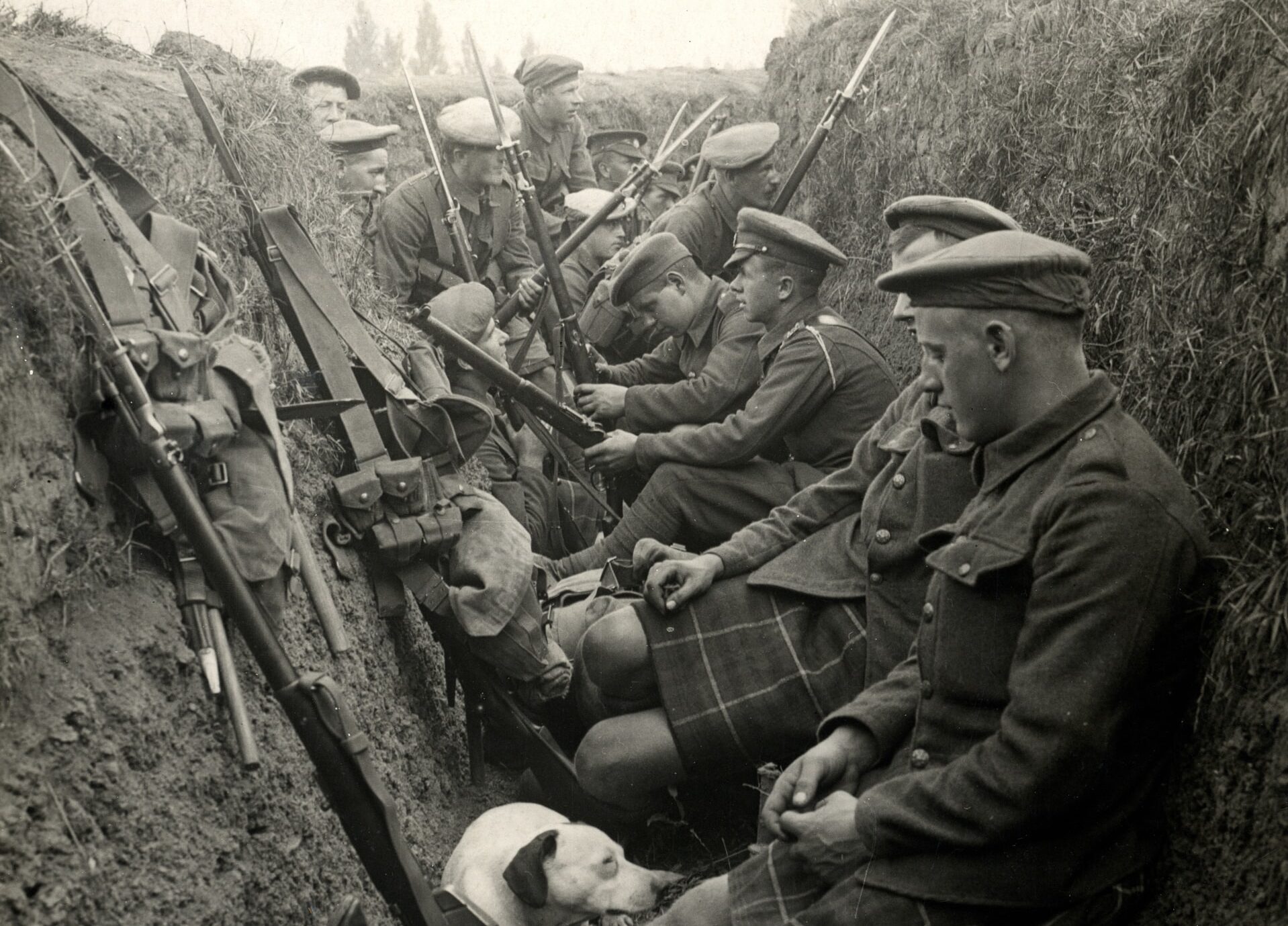by Patina Strohmer
Heinrich Strömier was no ordinary man. His blond hair and crystal blue eyes would have endeared him to the Fatherland during the Second World War. But that would be in a different century. The Franco-Prussian War was his family’s immediate concern. In a desperate and, ultimately futile, attempt to shield his family from the horrors of war, Heinrich’s father uprooted them from their German home and emigrated to England. He set up shop in the East End of London and, in a period of peace, Heinrich was born.
Although poorly-educated, Heinrich was a quick-witted, intelligent young man. One of eleven children, he soon learned how to look after himself and his younger siblings. That would stand him in good stead in later life. At his stall on the Black Horse Road in Walthamstow, he spoke the local lingo in his own peculiar accent and sold “whatever anybody wanted,” earning himself both
a good reputation and a fair living.
His good looks and jovial charm meant that he was never short of a partner at the Friday night dances but his fancy was taken was Emily Carter, a robust young girl of Irish descent, with a round face and deep green eyes. Her family had been in London for many generations. Although they were firmly established in the East End, they remained fiercely proud of their ancestry and never forgot their immigrant roots. As such, they welcomed a fellow foreigner into their midst and were happy to accept his proposal of marriage to their daughter. In keeping with their Celtic heritage, they partied hard at the wedding, even as the storm clouds of the Great War began to gather over Europe.
Heinrich and his new bride settled into a two-up, two-down rented house in Hamilton Road, E17. Typical of the time, it had no running hot water, an outside toilet and a dolly tub and mangle in the yard but they loved their new home. He continued to work at the market, she grew vegetables in their tiny, triangular garden and they thought about starting a family.
Meanwhile, in a faraway country, Archduke Ferdinand, the heir to the Austro-Hungarian throne, was assassinated. “The war to end all wars” was about to begin.
In Britain, trouble was in the air. Heinrich was not one to panic. This, too, would work to his advantage in the future. He reassured his anxious wife and watched the political situation carefully. He was already formulating a plan when his hand was forced by sudden, unprovoked bouts of “Jerry bashing” that erupted in the local community. Two of his brothers received severe beatings at the hands of these zealous vigilantes. Even Emily, who was well known and liked in the neighbourhood, began to receive both insults and even threats for being married to a “Hun.” Heinrich decided that it was time to launch his pre-emptive strike.
On the eve of war with Germany, he joined the British Army.
The establishment regarded him with deep suspicion at his enlistment. As the great-grandson of a German Baron, his papers were checked thoroughly. When found to be in order, the military subjected to a particularly rigorous medical, in the hope of finding some other reason to reject him. His great physical fitness provided no excuse for his exclusion. The army pondered the situation. Eager volunteers, convinced that “it will all be over by Christmas,” were enlisting in large numbers. But the establishment guessed otherwise.They were going to need as much cannon-fodder as they could muster. A German in their ranks could be quite useful in the long run. If he made it to the long run.
Heinrich was signed up by the British Army and his progress monitored.
At first, the rest of his battalion was openly hostile to him. They perceived him as the enemy in their midst, a spy who would steal secrets then shoot them in their sleep. But Heinrich was not easily intimidated. He persisted and passed his basic training with flying colours. He maintained his friendly manner and, gradually, his comrades began to warm to his easy charm. Eventually, they even accepted him as their sergeant when his instinctive leadership led to his promotion.
As a German in the British army, Heinrich Strömier was no ordinary soldier and he soon found himself in no ordinary situation. Finding that he was the highest ranking officer left in his squad, he surveyed the scene with carefully-concealed horror; the conditions, the combat, the complete carnage. A total contrast to the jolly “play up, play up and play the game” ethos of the recruitment office. Nobody had ever seen anything like this before; the flies, the lice, the stench of the sewers, trenches that ran with blood and the sound of grown men screaming for their mothers as they died. Unaware of their seventeen day life expectancy, Heinrich’s men, like thousands of others, were forced to swallow their disbelief and settle into trench existence in the hope that it would all be over soon. For most of them, it was.
They learned to live with the rats and the rations and, in time, even became deaf to “the shrill, demented choir of wailing shells.” Of all the degrees of deprivation, the most difficult day-to-day danger was the mud. It oozed and sucked and seeped into every aspect of every day; restricting mobility, rotting living flesh and, as the weather grew colder, freezing toes clean off. Heinrich,who didn’t escape this particular curse, later told stories of men cracking off their boots to find that they had left lumps of their feet behind. Was slow consumption by gangrene or septicemia preferable to a quick bullet in the skull?
And in the middle of it all, there was No Man’s Land. A soaking desert, bare except for the skeletal coils of wire and the skeletal fragments of those caught upon them. The pieces of men cut down by “the stuttering rifle’s rapid rattle” or blown apart by mines. The rotting remains of “The Glorious Dead.”
And beyond that, the enemy. The faceless, soulless, amorphous mass of the German Army. Heinrich Strömier’s uncles? Cousins? Nephews?
Severely compromised by all these things, survival was still basically dependent upon fresh water. The problem was access. Having been cut off by an enemy pincer manoeuvre, water had to be retrieved from a nearby lake-across No Man’s Land.
Heinrich waited for the freezing darkness to fall. He sat and smoked and watched as the ever-changing faces of the youths in his charge prepared themselves for the long hours ahead. As well as significant damage to his feet, he had sustained several other injuries. He had suffered shrapnel wounds and bullet nicks and one particular time, a stone, kicked up by a stray bullet, hit him squarely in the forehead.The whole of the top of his head went numb and, for a moment, he was convinced that it had been blown right off. Wary of the “third light” superstition, on more than one occasion, them an standing right next to him was cut dead by a sniper’s bullet as they shared a cigarette. But, he mused, for some reason, he was still here. He smiled as he recalled his father telling him that “If you were born to hang, you’d never be shot.”
He lit another cigarette and pulled a filthy envelope from his pocket. He unfolded it carefully and read, once again, the latest news from Emily. She was now working in the local munitions factory, supporting the war effort. But nobody on the factory floor ever spoke to the “Hun-lover.” In fact, when she emerged from behind their front door to run the gauntlet to the local shop, no more than twenty yards away, people she had known all her life would appear and pelt her with stones. Apparently, no longer was all fair in love and war. It wasn’t just those on the front line who suffered.
Heinrich sighed, refolded the letter and put it back into his pocket. As the light faded, he strapped the water keg to his back and prepared to venture out under cover of darkness. He put one foot on the ladder and stopped. Several times he had stood there, waiting for the whistle; the order from some ancient general tucked up safely miles behind the front line, casually sending a whole generation to their doom. Lions led by donkeys, indeed.
Heinrich slid on his belly across the icy mud. He manoeuvred his way around the stagnant pools of his fallen comrades until his searching fingers found fresh water. He drank deeply then loosened the keg from his back and let it fill. When it was heavy, he slung it back across his shoulders and slid around to face the way he had come, trying to orientate himself in the total blackness.
It was quiet tonight, he thought as he made his way back…
In that split second, a flare went up and suddenly, starkly, the wilderness of No Man’s Land was brightly lit. A surprising number of live bodies were out, scavenging among the dead. But their skin was as pale and their eyes as wide as the lifeless faces around them, frozen in the glare. The air was filled with shouts and screams as both sides opened fire. Bullets whizzed and thudded while bodies hurtled around.
Heinrich got up onto his hands and knees and scrabbled through the chaos. He found himself both deafened and flattened by a shell landing nearby. Dazed, he slowly realized that he wasn’t actually dead, although his surroundings resembled a passable impression of Hell. As the flare faded, he slipped and skidded towards the trench in front of him and fell over the edge with a groan of gratitude.
He caught his breath and looked up — straight into the wide blue eyes of a German sergeant.
He froze. The sergeant stared. The men around him darted anxious looks at each other and then at their rifles that were facing out towards the enemy lines. The sergeant reached for his pistol.
Heinrich leapt to his feet. “Nicht schießen! Ich bin Deutscher. Ich bin einer von euch!” (Do not shoot! I am a German. I am one of you!)
The shocked sergeant paused, disorientated by his mother tongue falling from the mouth of this “Tommy.” In that crucial moment of confusion, Heinrich scrambled up the ladder and tore off across the mud, back to the British front line. Bullets began zipping past him as he ran. He fell to the ground, head first, as one skimmed up his spine. He felt the wetness seeping through his coat.
The young girl listened, mesmerized, as the tale was retold. She had seen the old man’s feet, mutilated by the mud. But, despite this, and now being in his ninth decade, he continued to wheel his barrow to the Black Horse Road market every weekend, joking with women thirty years younger than himself, calling them “Mum.”
He and his wife eventually had two sons; they lost one to a brain tumour, nursing him through the screaming agony of the days before powerful, palliative drugs were affordable. Although deeply distressed, Heinrich was well used to suffering. Nowadays, he cared for the increasingly frail but still smiling Emily, continued to grow vegetables in their tiny triangular garden and, occasionally, told his tales to the next generation, lest they forget.
The young girl absorbed the story silently, gazing in wonder as the old man turned his back to her, lifted his jumper and showed her the silver scar that topped his sharp spine.
Originally from London, Patina Strohmer is a writer now living in the beautiful Brecon Beacons of South Wales, U.K. Her first novel, “Truly Blue; A Rock & Roll Parable”, was published by Leaf Books in March 2009. Her second novel, “Entertaining Angels”, was published by Cinnamon Press in May 2016. She also writes short stories (many of which have won/been placed in competition) plays, magazine articles, educational resources and the occasional biography.



Add your first comment to this post